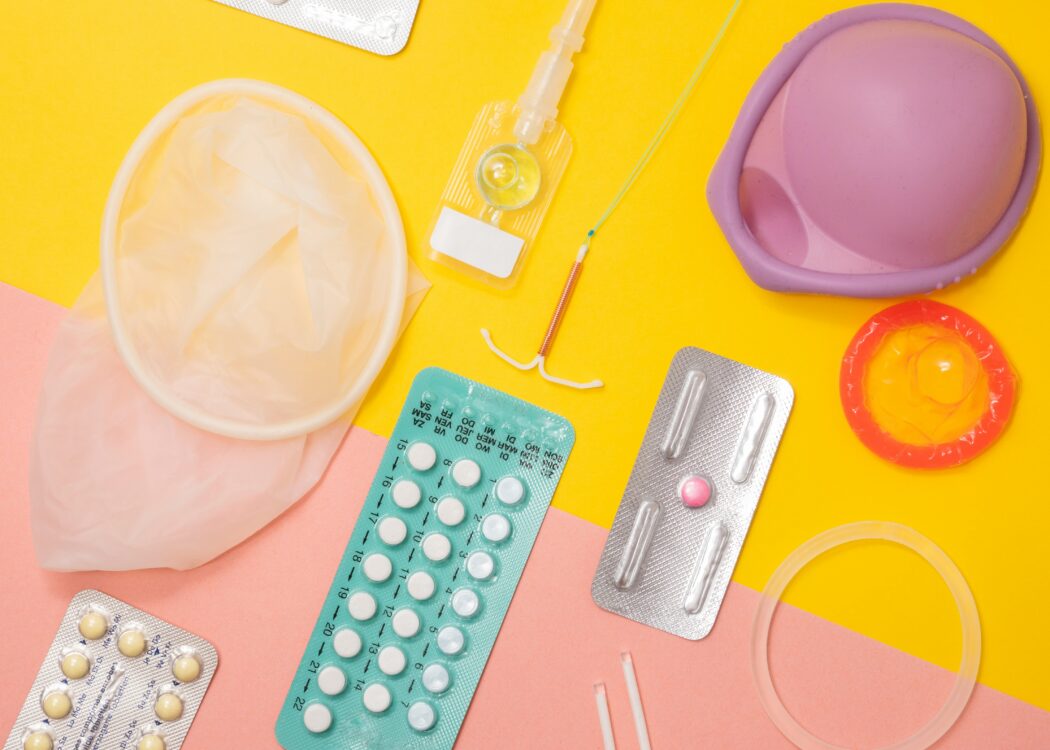For the past year, a recent trend has been sweeping social media platforms worldwide: women sharing their experiences with women’s health procedures and diagnoses. Videos detailing the unnecessary physical pain of IUD insertions or the emotional pain of not being believed by doctors when suffering from PCOS have flooded my feed for months, making me wonder about the impacts of such a large resistance against the world of healthcare..
It all began with a viral video of a woman detailing how much pain she was in due to her IUD placement. An IUD is a T-shaped rod implanted into the uterus as a means of birth control. This procedure involves opening the vagina with a speculum and using an inserter to push the IUD through the cervix and into the uterus. Despite having birthed multiple children, she described the pain as truly excruciating. Considering the sheer amount of attention and responses she received, this woman seems to have expressed a common truth. Others agreed, revealing that this pain seems to be a common occurrence with this procedure. However, despite these patient complaints, doctors tended not to provide adequate pain management. Eventually, OBGYNs and obstetricians joined the conversation, with many calling for the option of offering pain management.
Considering the sheer amount of attention and responses she received, this woman seems to have expressed a common truth.
Women online have also been sharing their experiences with Polycystic Ovarian Syndrome (PCOS) seemingly to foster a sense of community and expose the general public to this disease. PCOS is characterized by irregular periods and hyperandrogenism, and is often missed or misdiagnosed by medical providers. To further their knowledge of this novel spread of information, the Journal of Adolescent and Pediatric Gynecology published research on how people discuss PCOS on Instagram, TikTok, and Reddit. The study found that some scientific information is spread through these sites, mostly from unverified sources, and that women mostly share personal strategies or stories surrounding their illness.
Women now have the opportunity to build on each other’s efforts to advocate for their health, allowing more and more women to be able to ask the right questions, especially those coming from disadvantaged backgrounds who may not have the privilege of yearly checkups or consultations. We’ve essentially created a space where people can speak freely about medical problems that have consumed their lives and be validated by others in similar situations.
Women now have the opportunity to build on each other’s efforts to advocate for their health…
Not being believed has been a major factor that has brought women to the internet. Thus, the sheer amount of people revealing how arduous their process of being diagnosed became after being constantly dismissed clearly reveals the greater issue at hand: medical bias. Women of color have been disproportionately affected by this phenomenon, and studies have been performed to analyze this impact, but the internet shows how personal and far-reaching these medical errors have become. According to the US Department of Labor, medical professionals, on average, tend to see less pain on the faces of people of color compared to white faces. Pain is the least objective part of medicine; therefore, racism and sexism tend to manifest in this area.
When women are not believed, new physical and emotional damage is created. Social media seems to be a coping mechanism for many women who have gone through this. By unloading their medical trauma, women can be supported by others and find community, or at least warn women and women of color about the dangers of a healthcare system crafted for and by white men. Additionally, the amount of similar stories has made the conversation somewhat mainstream. By constantly seeing and hearing people speak about women’s health, we are normalizing something that used to be concealed and forgotten about. Words that used to be banned from public discussion, like “uterus” or “menstruation” have become medical terminology for most of us. Thus, the shame felt twenty years ago surrounding the health of half of the world’s population is being lessened day by day, and we have social media to thank for that.
By unloading their medical trauma, women can be supported by others and find community…
We are visibly moving towards women’s health becoming any other part of medicine, but to fully integrate this specialty into the medical world and have it be taken as seriously as any other specialty, the women being treated and their pain need to be taken seriously as well. The lack of respect administered to women of color and women in general is the problem at hand. Once women are given the same dignity as any other human being, medicine will follow suit.








